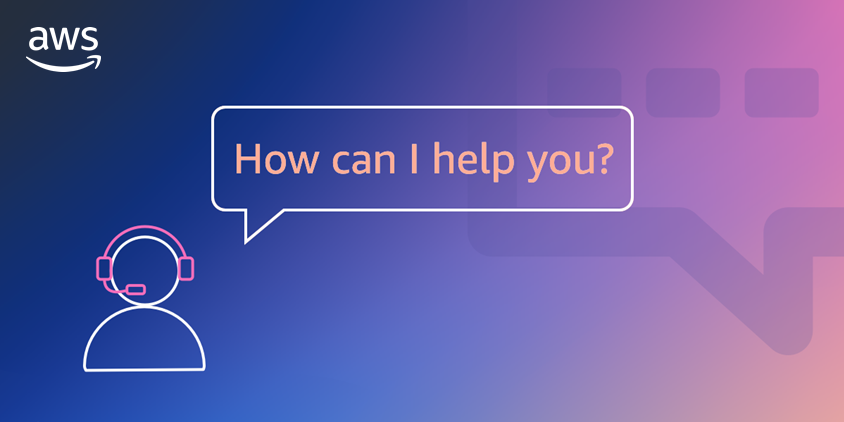
Providing exceptional customer support is important for maintaining customer satisfaction and loyalty. In fact, a Forrester report shows that 45% of US-based customers will abandon their online purchase if they can’t find a quick answer to their question. AI tools offer numerous benefits and opportunities for businesses to enhance their customer support strategies.
AI in customer support has quickly become the goto solution that is rapidly reshaping the way businesses interact with their customers. Companies can not only improve response times and efficiency, but also offer personalized interactions, reduce support costs, and avoid errors.
The industry average for first call resolution (FCR) hovers around 70%, with only 5% of companies reaching 80% and above. Imagine if you had the tools to reach those heights for your call center or customer support desk. This is where call support AI tools come into play.
What about addressing customer concerns without them having to pick up the phone? By integrating chatbots directly on the company website and social media channels those organizations can meet customer needs by connecting them to data specific to their immediate concerns with a friendly chat interface.
Benefits of Using AI in Customer Support
So what do AI support tools bring to the table that traditional support software and training seem to lack? Let’s take a look:
Better response times
With traditional customer support communication channels via call centers, we mainly think in human to human communications – calls come in and are managed by human operators. Those customer service reps pull up information from a database or contact other staff members to help resolve the issue while communicating with the caller.
With AI involved there are now more layers of communication that can come with the added benefit of quicker response times. There is now caller-to-bot communication for self-service, agent-to-bot communication for faster data lookup and bot-to-bot communication happening beneath it all for faster data processing.
AI-powered chatbots or virtual agents can provide instant responses to customer queries, eliminating the need for customers to wait for a human representative.
How do customers feel about the switch to AI customer support? Well 29% say that they prefer to use online customer service rather than speak with a live person on the telephone.
Increased efficiency
In a study conducted by the Nielsen Norman Group, it was observed that customer support agents when working with AI tools could handle 13.8% more customer inquiries per hour.
This same study also found that AI tools significantly benefited employees with the least amount of experience, increasing their productivity by a staggering 35%. This equates to two and a half times as much as the average agent. At the top percentile of agents the benefits were not as significant but this highlights that customer support AI tools are a great way to round out the overall efficiency of any customer support team.
24/7 availability
AI chatbots can provide round-the-clock support, ensuring that customers receive assistance whenever they need it, regardless of time zones or business hours. It is said that 81% of customers look up information about a product, either online or via customer support before making a purchase. With customer support being accessed more often throughout the day thanks to AI tool integrations that means more sales opportunities.
Reduced support costs
Businesses can significantly reduce the number of support agents needed, resulting in cost savings. It also means that it takes less time to train each agent, making new hires profitable to the organization in a much shorter period of time.
Enhanced scalability
AI systems can effortlessly handle high volumes of customer queries, ensuring that businesses can scale their support operations without compromising quality. With agent-to-bot strategies each agent can process more calls per hour, allowing the entire team to scale up rapidly.
In the case of self-service customer support where customers interact with chatbots directly, that translates to scaling IT infrastructure to meet the demands of the customer base, which is even easier on management.
How AI Enhances Response Time and Efficiency
Earlier we briefly touched on the boost to efficiency with AI integration with customer support. Let’s now take a closer look at what is involved in making that happen.
Automated Ticket Routing
AI can intelligently analyze customer inquiries and route them to the most suitable support agent or department. By doing this, AI eliminates the need for manual ticket assignment, saving time and reducing the risk of human error.
Speedy Issue Resolution
AI chatbots can access vast amounts of data from company knowledge bases instantly. They can retrieve relevant product and customer information and provide accurate answers to customer queries, resulting in speedy issue resolution. This not only improves response time but also increases customer confidence in the support provided.
Intelligent Routing of Complex Cases
AI can analyze the complexity of customer inquiries and intelligently route them to the most experienced support agents. This ensures that complex cases are handled by experts, avoiding unnecessary transfers and delays in resolution.
Intelligent Suggestions and Automation
AI-powered systems can suggest relevant articles, FAQs, or troubleshooting steps to customers based on their inquiries. This helps in self-service resolution and reduces the workload on support agents.
Additionally, AI can automate repetitive tasks like password resets, order tracking, and appointment scheduling, freeing up support agents to focus on more complex customer issues.
AI Implementation in Customer Support
So what’s a good way to get started with AI customer support integration? It starts with getting a chatbot service that can connect to the company knowledge base and website to begin processing queries. One of the tools we’ve been looking into closely is My AskAI.
My AskAI boasts a setup time of less than 2 minutes. With this particular AI tool, organizations can connect their knowledge base to several different communication channels. These include Slack, Whatsapp, website integration, Facebook Messenger and Microsoft teams.
If a client wants to further extend their options for customer support, there are also options for connecting via API and even Zapier for workflow automations.
Case Studies in AI Customer Support Platforms
We know that shop integration with AI chatbots is an important step in the ecommerce space because we’ve seen stories from big brands taking advantage of their huge benefits.
Amazon

Amazon has long been at the forefront of utilizing AI technology in customer support. Of course everyone is familiar with Alexa, which runs on a conversational AI platform.
Today they boast that their recommendation engines are now driving 35% of total sales. How do they do it? By applying continuous AI to understand the context and intent behind customer search queries. Amazon knows why people are searching for specific products and they can point them towards those products easily.
Uber

Another company at the forefront of AI customer support is Uber. Ritesh Agrawal, Tech Lead Manager at Uber highlighted several major benefits to AI customer support agents. Most notably is the one-click chat feature. The feature relies on machine learning and NLP to anticipate responses to frequent riders’ questions. Not only can it pull up information from the company’s knowledge base, it can connect to APIs that feed in real-time traffic data to give estimates on trip times.
Start leveraging AI customer support tools in your organization to keep up with customer demands. Begin your journey with rapid deploy AI chatbots like My AskAI to take advantage of your existing knowledge base.
Kevin is a digital marketing expert with a previous 10 years worth of experience working in IT. He understands the nuances of sourcing the right IT resources to drive results for organizations.
